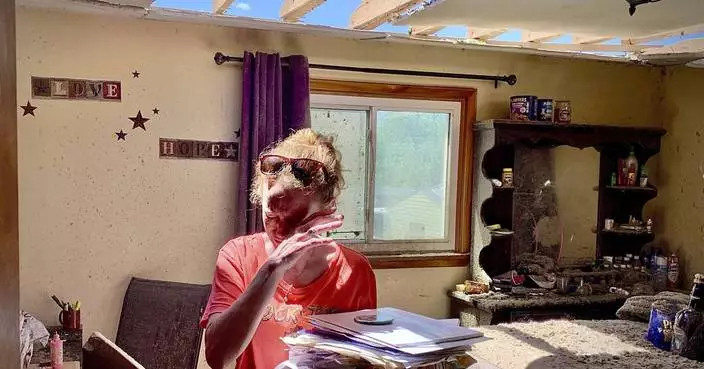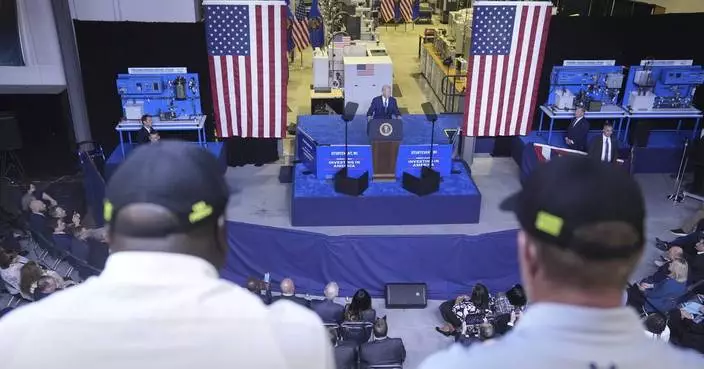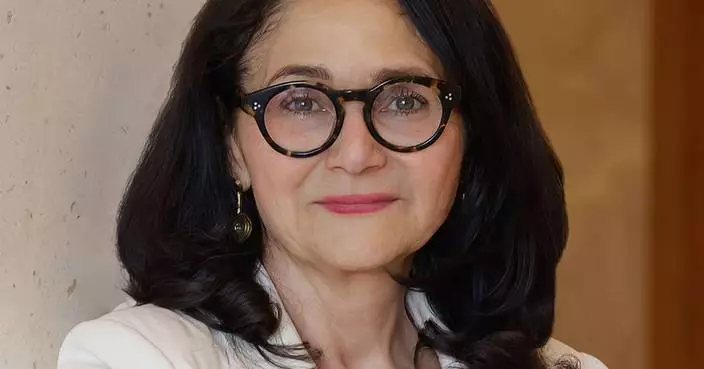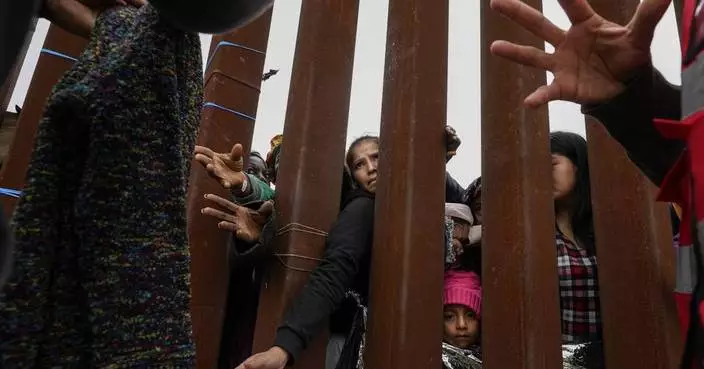The parents of a 21-year-old West Point cadet fatally injured in a skiing accident can use his frozen sperm to produce a child, a judge ruled while noting potential ethical considerations.
Supreme Court Justice John Colangelo's ruling, dated Thursday, gives Peter Zhu's parents the ability to attempt conception with a surrogate mother using their late son's sperm. The judge said Zhu's parents have not decided whether they will try to use it.
"At this time, the court will place no restrictions on the use to which Peter's parents may ultimately put their son's sperm, including its potential use for procreative purposes," Colangelo wrote.
Zhu, of Concord, California, died after a ski accident in February at West Point. His parents received court permission to have his sperm retrieved and frozen at the same time he underwent organ donation surgery, but the judge waited until last week to rule on whether they could attempt reproduction. The sperm is preserved at a sperm bank.
Colangelo said he found no restrictions in state or federal law. He noted that few courts have addressed the issue of posthumous reproduction, but those who have addressed it used the decedent's intent as a deciding factor. He cited a 2008 case where a court ordered destruction of a man's sperm according to his written request during his lifetime, despite his widow's claim to the sperm as her property.
He also cited a 1993 case where a court held that a dead man's estate representative didn't have the right to destroy his frozen sperm in light of his written intent that it be stored for possible future use by his longtime girlfriend.
Zhu left no written intention regarding the use of his genetic material for procreation after his death, Colangelo said. But he said Zhu's parents testified regarding conversations where he talked of his dream of having several children and the responsibility he felt to carry on his cultural and family legacy. Zhu's military advisor at West Point also testified that Zhu had stated a goal of having several children during mentoring sessions.
Monica Minzhi Yao, Zhu's mother, said Monday that the family wants privacy and will not comment on the case. "We are extremely devastated over this freak accident," she said. "Our pain is something that no words can describe."
And while Colangelo left the decision of what to do with Zhu's sperm up to his family, he noted there may be other obstacles including reluctance of some doctors to assist for ethical reasons.
Typically, court cases involving posthumous reproduction are filed by surviving spouses, not parents. But Zhu's case isn't unprecedented.
In 2007, a court in Iowa authorized recovery of a man's sperm by his parents to donate to his fiance for future procreative use. In 2009, a Texas woman got a judge's permission to have her 21-year-old son's sperm extracted after his death, with the intention of hiring a surrogate mother to bear her a grandchild.
In 2018, the American Society for Reproductive Medicine issued ethical guidelines for fertility centers on posthumous collection of reproductive tissue. The organization said it's justifiable if authorized in writing by the deceased. Otherwise, it said, programs should only consider requests from the surviving spouse or partner.
UNITED NATIONS (AP) — The U.N. General Assembly is expected to vote Friday on a resolution that would grant new “rights and privileges” to Palestine and call on the Security Council to favorably reconsider its request to become the 194th member of the United Nations.
The United States vetoed a widely backed council resolution on April 18 that would have paved the way for full United Nations membership for Palestine, a goal the Palestinians have long sought and Israel has worked to prevent, and U.S. deputy ambassador Robert Wood made clear Thursday the Biden administration is opposed to the assembly resolution.
Under the U.N. Charter, prospective members of the United Nations must be “peace-loving,” and the Security Council must recommend their admission to the General Assembly for final approval. Palestine became a U.N. non-member observer state in 2012.
“We’ve been very clear from the beginning there is a process for obtaining full membership in the United Nations, and this effort by some of the Arab countries and the Palestinians is to try to go around that,” Wood said Thursday. “We have said from the beginning the best way to ensure Palestinian full membership in the U.N. is to do that through negotiations with Israel. That remains our position.”
But unlike the Security Council, there are no vetoes in the 193-member General Assembly and the resolution is expected to be approved by a large majority, according to three Western diplomats, speaking on condition of anonymity because negotiations were private.
The draft resolution “determines” that a state of Palestine is qualified for membership – dropping the original language that in the General Assembly’s judgment it is “a peace-loving state.” It therefore recommends that the Security Council reconsider its request “favorably.”
The renewed push for full Palestinian membership in the U.N. comes as the war in Gaza has put the more than 75-year-old Israeli-Palestinian conflict at center stage. At numerous council and assembly meetings, the humanitarian crisis facing the Palestinians in Gaza and the killing of more than 34,000 people in the territory, according to Gaza health officials, have generated outrage from many countries.
The original draft of the assembly resolution was changed significantly to address concerns not only by the U.S. but also by Russia and China, the diplomats said.
The first draft would have conferred on Palestine “the rights and privileges necessary to ensure its full and effective participation” in the assembly’s sessions and U.N. conferences “on equal footing with member states.” It also made no reference to whether Palestine could vote in the General Assembly.
According to the diplomats, Russia and China which are strong supporters of Palestine’s U.N. membership were concerned that granting the list of rights and privileges detailed in an annex to the resolution could set a precedent for other would-be U.N. members — with Russia concerned about Kosovo and China about Taiwan.
Under longstanding legislation by the U.S. Congress, the United States is required to cut off funding to U.N. agencies that give full membership to a Palestinian state – which could mean a cutoff in dues and voluntary contributions to the U.N. from its largest contributor.
The final draft drops the language that would put Palestine “on equal footing with member states.” And to address Chinese and Russian concerns, it would decide “on an exceptional basis and without setting a precedent” to adopt the rights and privileges in the annex.
The draft also adds a provision in the annex on the issue of voting, stating categorically: “The state of Palestine, in its capacity as an observer state, does not have the right to vote in the General Assembly or to put forward its candidature to United Nations organs.”
The final list of rights and privileges in the draft annex includes giving Palestine the right to speak on all issues not just those related to the Palestinians and Middle East, the right to propose agenda items and reply in debates, and the right to be elected as officers in the assembly’s main committees. It would give the Palestinians the right to participate in U.N. and international conferences convened by the United Nations — but it drops their “right to vote” which was in the original draft.
Palestinian President Mahmoud Abbas first delivered the Palestinian Authority’s application for U.N. membership in 2011. It failed because the Palestinians didn’t get the required minimum support of nine of the Security Council’s 15 members.
They went to the General Assembly and succeeded by more than a two-thirds majority in having their status raised from a U.N. observer to a non-member observer state. That opened the door for the Palestinian territories to join U.N. and other international organizations, including the International Criminal Court.
In the Security Council vote on April 18, the Palestinians got much more support for full U.N. membership. The vote was 12 in favor, the United Kingdom and Switzerland abstaining, and the United States voting no and vetoing the resolution.
Follow AP's coverage at https://apnews.com/hub/israel-hamas-war
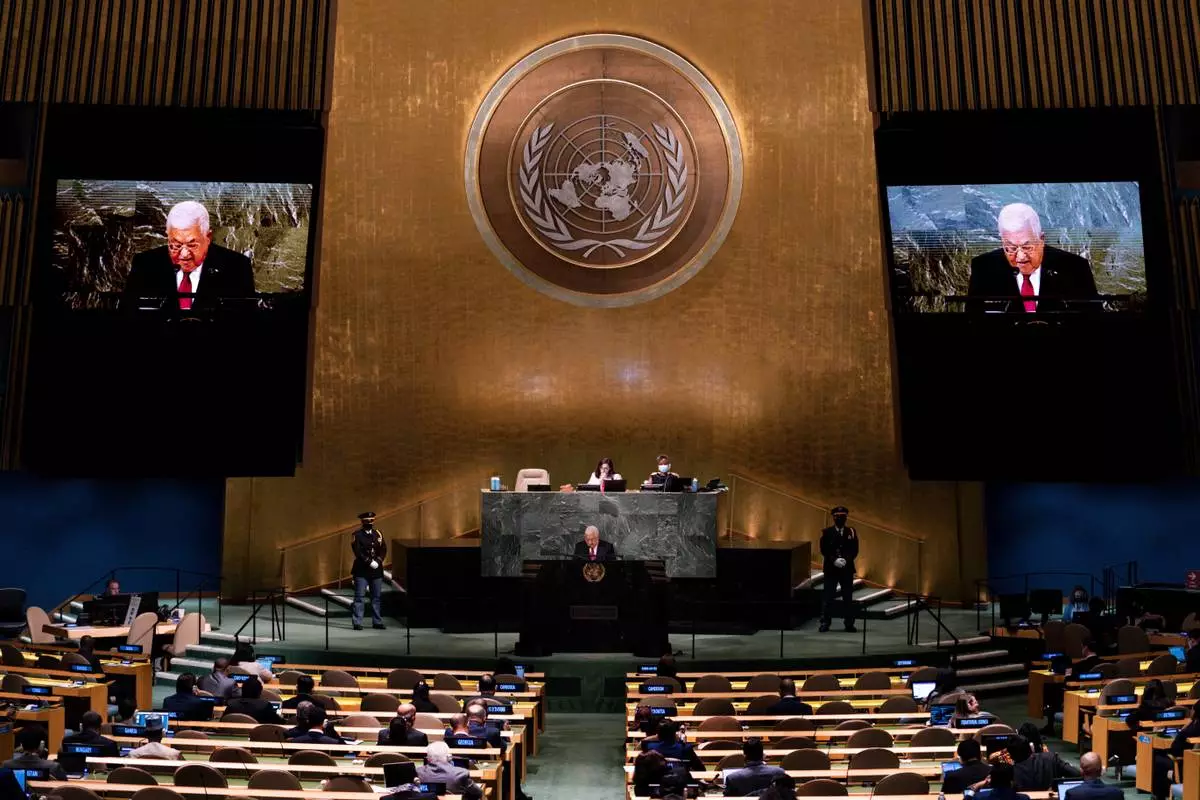
FILE - Palestinian President Mahmoud Abbas addresses the 77th session of the United Nations General Assembly on Sept. 23, 2022, at the U.N. headquarters. The U.N. General Assembly is expected to vote Friday, May 10, 2024, on a resolution that would grant new “rights and privileges” to Palestine and call on the Security Council to favorably reconsider its request to become the 194th member of the United Nations. (AP Photo/Julia Nikhinson, File)





